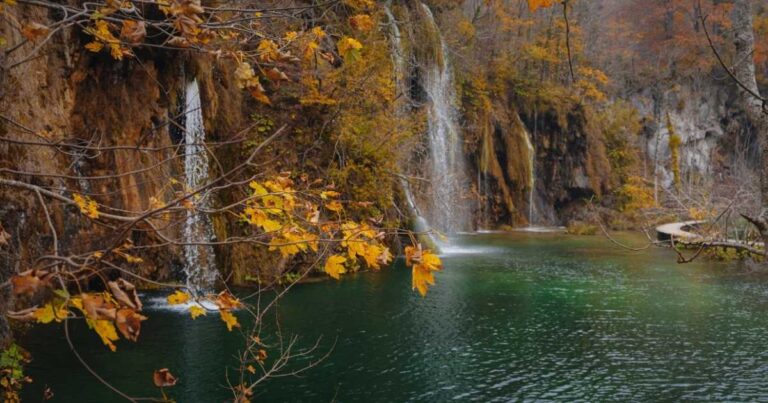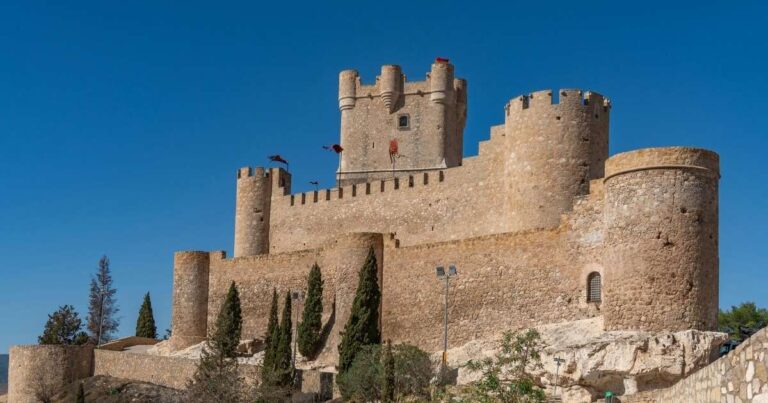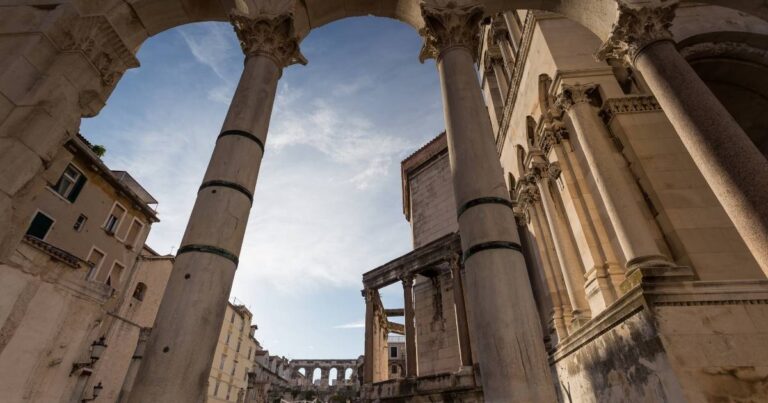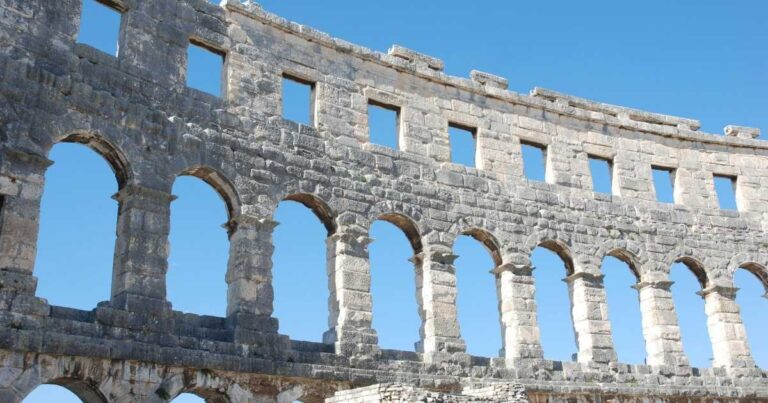Welcome to your comprehensive wildlife guide for Croatia, focusing on ethical animal tourism. As you plan your Croatia vacation, it’s essential to explore Croatia’s diverse landscapes and abundant wildlife with respect for nature. This guide to ethical tourism in Croatia offers insights into responsible tourism, helping you make informed choices that protect the stunning natural environment while enjoying unforgettable encounters with wildlife.
Understanding Wildlife Tourism in Croatia
Tourism in Croatia is booming, attracting visitors with its stunning coastline, historic cities like Dubrovnik and Zagreb, and breathtaking national parks such as Plitvice Lakes National Park and Krka. However, it’s crucial to understand the impact of wildlife tourism on the delicate ecosystem. As travellers, we have a responsible tourism duty to ensure our adventures contribute positively to wildlife conservation and raise awareness, thus supporting ethical practices.
What is Wildlife Tourism?
Wildlife tourism encompasses any tourism activity that involves observing or interacting with animals in their natural environment. This can range from guided excursions in national parks to dolphin watching tours off the Dalmatian coastline near islands like Hvar. While these experiences can be incredibly enriching, it’s vital to critically evaluate the tourism practices involved to ensure they prioritize the well-being of the wildlife and the health of the ecosystem, showing respect for their habitat.
The Importance of Responsible Tourism
Responsible tourism is more than just a trend; it’s a necessity for preserving Croatia’s wildlife and its biodiversity for future generations. Irresponsible animal tourism can lead to habitat destruction, disturbance of natural behaviours, and even direct harm to animals. By choosing ethical animal tourism options, you directly contribute to wildlife conservation efforts, protecting Croatia’s diverse landscapes and raising awareness about the importance of respect for nature.
Ethical Animal Tourism: Key Principles
Ethical animal tourism prioritizes animal welfare and minimizes environmental impact. This means avoiding activities that exploit, stress, or endanger wildlife. It also emphasizes respect for nature and the ecosystem, ensuring that tourism practices minimize environmental impact. When planning your travel in Croatia, consider staying in secluded accommodation that is environmentally friendly, nestled within Croatia’s mountainous regions like Gorski Kotar or even near a cliff offering scenic views.
Exploring Croatia’s National Parks
Overview of Croatia’s National Parks
Croatia’s national parks offer opportunities for wildlife observation and responsible tourism. From the iconic Plitvice Lakes National Park with its cascading waterfalls to the rugged beauty of Krka National Park, each park showcases Croatia’s diverse landscapes. A trip to Croatia often includes a visit to one or more of these national parks. These protected areas are vital for wildlife conservation, preserving the natural environment and allowing visitors to witness animals in their natural environment. Remember to show respect for nature during your excursion.
Top Wildlife Species to Encounter
When you travel in Croatia, its national parks teem with wildlife. Keep an eye out for the elusive Eurasian lynx, the majestic brown bear, and the nimble chamois in the alpine regions. Birdwatchers will delight in spotting various bird species, including the golden eagle and peregrine falcon. Along the coastline, especially during a Dalmatian excursion, you might encounter dolphins. By choosing ethical animal tourism, you contribute to protecting these species and their habitats. Ensuring that tourism practices are sustainable helps maintain the delicate ecosystem. If you visit Hvar, consider a boat trip to spot marine wildlife.
Conservation Efforts in National Parks
Croatia’s national parks are centers for wildlife conservation. Dedicated rangers and conservationists work tirelessly to protect the natural environment, monitor wildlife populations, and combat poaching. Through responsible tourism and supporting ethical initiatives, visitors can contribute to these efforts. By staying in secluded accommodation near these parks, you can directly support local economies committed to raising awareness and preserving Croatia’s wildlife. Showing respect for nature is paramount when exploring these areas. Help maintain biodiversity during your Croatia vacation.
Animal Encounters in Croatia
Best Locations for Ethical Animal Encounters
For memorable and ethical animal encounters with wildlife in Croatia, focus on locations that prioritize wildlife welfare and sustainable tourism practices. National parks like Plitvice Lakes National Park and Krka offer guided tours that minimize disturbance to animals and their habitats. Consider visiting nature parks like Gorski Kotar for opportunities to see wildlife in a less crowded setting. The Adriatic coastline near Hvar and other Dalmatian islands provides opportunities for responsible dolphin watching tours. Make sure your travel in Croatia includes experiences that demonstrate respect for nature.
Guidelines for Responsible Animal Tourism
Responsible tourism ensures that your excursion in Croatia does not harm wildlife or their habitats. To protect animals and their environment, it’s important to follow some key guidelines, including:
- Maintaining a safe distance from animals and never feeding them.
- Choosing tour operators that adhere to strict ethical animal guidelines.
Be mindful of your impact on the ecosystem by minimizing waste and staying on designated trails. By following these guidelines, you can enjoy incredible encounters with wildlife while supporting ethical and sustainable tourism practices, fostering respect and contributing to raising awareness during your Croatia vacation.
Local Wildlife Species and Their Habitats
Croatia boasts diverse habitats supporting a wide array of wildlife. Croatia’s diverse landscapes provide habitats for a wide array of wildlife species. In Croatia’s mountainous regions, you might spot brown bears, wolves, and lynx, while the wetlands are home to various bird species and amphibians. The Adriatic Sea hosts dolphins, sea turtles, and diverse marine life. Protecting these habitats is crucial for wildlife conservation. As a participant in wildlife tourism, it is important to be aware of the delicate balance of these ecosystems and to promote responsible tourism practices that help maintain biodiversity and show respect for nature, even near a cliff or beach.
Respecting Nature: A Guide to Ethical Practices
How to Respect Wildlife and Their Ecosystems
Showing respect for nature is paramount when engaging in wildlife tourism in Croatia. It begins with understanding the delicate balance of the ecosystem and the impact that tourism practices can have. When you travel in Croatia, remember that you are a guest in the natural environment. Avoid littering, stay on designated trails, and never disturb animals or their habitats. This means keeping a safe distance from wildlife, especially in national parks like Plitvice Lakes National Park and Krka.
Practical Tips for Sustainable Animal Tourism
To practice sustainable animal tourism during your Croatia vacation, focus on making responsible choices. This involves selecting:
- Accommodation that prioritizes environmental conservation and reduces its ecological footprint.
- Tour operators committed to responsible tourism and ethical animal practices when embarking on a Dalmatian excursion or visiting Hvar.
Additionally, be mindful of your consumption of resources like water and energy, and support local businesses that actively contribute to wildlife conservation. By making informed choices, you can help minimize the impact of tourism on Croatia’s biodiversity and Adriatic coastline.
Engaging with Local Communities
Support local communities by learning about their culture and purchasing local products. Supporting ethical tourism involves more than just protecting wildlife; it also means engaging with local communities respectfully and beneficially. When you travel in Croatia, there are several ways to engage with local communities:
- Learn about Croatian culture and traditions.
- Support local businesses and artisans by purchasing locally made products and services.
Be mindful of cultural norms and customs, and always ask for permission before taking photographs of people. By fostering positive relationships with local communities, you contribute to sustainable tourism that benefits both people and nature parks, even near a cliff.
Dalmatian Coast: A Wildlife Haven
Unique Ecosystems along the Dalmatian Coast
The Dalmatian coastline of Croatia is a treasure trove of unique ecosystems, each teeming with diverse wildlife. From rocky shores and sandy beaches to lush Mediterranean forests and alpine meadows, the region offers a variety of habitats that support a wide range of species. The Adriatic Sea, with its crystal-clear waters, is home to dolphins, sea turtles, and numerous fish species. Exploring Croatia’s diverse landscapes during your excursion is to witness the magic of biodiversity. You can experience this by staying in secluded accommodation.
Wildlife Species of the Dalmatian Region
The Dalmatian region is home to a plethora of fascinating wildlife species. Keep an eye out for dolphin frolicking in the Adriatic Sea, especially during boat trips from Hvar. Birdwatchers will delight in spotting seabirds along the coastline and migratory species in the wetlands. In Croatia’s mountainous regions, you might even catch a glimpse of the elusive wild boar. Protecting these species and their habitats is essential for maintaining the ecological integrity of the Dalmatian region, raising awareness and supporting ethical tourism practices during your Croatia vacation.
Activities for Eco-Conscious Tourists
For eco-conscious tourists eager to explore the Dalmatian coastline responsibly, numerous activities promote respect for nature and wildlife conservation. Consider joining a guided kayaking tour to explore hidden coves and observe marine life without disturbing their natural environment. Opt for a responsible tourism boat tour that prioritizes dolphin welfare and adheres to strict ethical animal guidelines. Hiking in national parks like Krka and nearby nature parks offers opportunities to appreciate the beauty of Croatia’s diverse landscapes while minimizing your impact on the ecosystem. These tourism practices are important in Dubrovnik, Zagreb and the alpine area.
The Future of Ethical Animal Tourism in Croatia
Current Trends in Wildlife Tourism
There’s a growing demand for ethical animal tourism experiences and eco-accommodation in Croatia. The wildlife tourism sector in Croatia is experiencing shifts that emphasize sustainability and respect for nature. There’s a growing demand for ethical animal tourism experiences, with travellers increasingly seeking excursions that prioritize animal welfare and wildlife conservation. A rise in eco-accommodation is seen, including secluded hotels and guesthouses committed to minimizing their environmental footprint and raising awareness. These tourism practices are enhancing the natural environment near the Adriatic coastline and Croatia’s national parks.
Challenges Facing Wildlife Conservation
Habitat loss, climate change, and illegal hunting threaten Croatia’s wildlife. Wildlife conservation in Croatia faces several challenges. Habitat loss due to urbanization and agricultural expansion threatens Croatia’s diverse landscapes, impacting biodiversity. Climate change exacerbates these problems, altering ecosystems and affecting wildlife populations. Illegal hunting and poaching remain significant threats, particularly in Croatia’s mountainous regions. Sustainable tourism practices are crucial for mitigating these challenges and protecting animal tourism, especially ethical animal tourism, near national parks like Plitvice Lakes National Park, Krka and even in Gorski Kotar.
How Tourists Can Contribute to Conservation Efforts
Support ethical operators, participate in conservation activities, and educate yourself about Croatia’s wildlife. Tourists can play a vital role in wildlife conservation in Croatia by choosing responsible tourism options. Support ethical animal tourism operators committed to wildlife welfare and habitat protection. Participate in conservation activities such as tree planting or beach cleanups. Educate yourself about Croatia’s wildlife and the challenges they face, raising awareness among your friends and family. You can do your part by being mindful of your environmental impact, reducing waste, and showing respect for nature during your travel in Croatia and by choosing accommodation that is eco-friendly, even if it is near a cliff.
Conclusion and FAQs
Recap of Key Points
Ethical animal tourism in Croatia is crucial for wildlife welfare and ecosystem protection. This wildlife guide has highlighted the importance of ethical animal tourism in Croatia, emphasizing the need for responsible tourism practices that prioritize wildlife welfare and ecosystem protection. Croatia’s national parks and the Dalmatian coastline offer incredible opportunities for encounters with wildlife, but it’s crucial to choose tourism practices that minimize environmental impact and support wildlife conservation. Showing respect for nature and raising awareness are essential steps for ensuring the long-term sustainability of Croatia’s biodiversity and promoting ethical initiatives.
Final Thoughts on Ethical Animal Tourism
As you plan your Croatia vacation, remember that your choices as a tourist can have a significant impact on Croatia’s wildlife and the natural environment. By embracing ethical animal tourism, you can contribute to wildlife conservation efforts, support ethical local communities, and enjoy unforgettable experiences that demonstrate respect for nature. Let your travel in Croatia be a force for good, helping to protect the biodiversity of this beautiful country for future generations and keeping in mind the practices in Dubrovnik, Zagreb and Hvar.
FAQs About Wildlife Tourism in Croatia
Q1: What should I do if I encounter injured wildlife during my excursion?
A: If you encounter injured wildlife, do not approach or attempt to handle the animal. Contact the nearest national park authority or a local animal rescue organization. Please provide them with the location and a description of the animal’s condition. Your prompt reporting can help ensure that the animal receives the necessary care and treatment, contributing to wildlife conservation and demonstrating respect.
Q2: Are there any animal tourism activities I should avoid in Croatia?
A: Avoid any tourism activities that exploit or harm animals. This includes activities where animals are kept in captivity, forced to perform, or used for entertainment. Steer clear of operators that offer feeding wildlife or allow you to get too close to animals, as these tourism practices can disrupt their natural behaviours. Choose ethical animal tourism options that prioritize animal welfare and ecosystem protection.
Q3: How can I ensure that my accommodation is eco-friendly?
A: Look for accommodation that has implemented sustainable practices, such as using renewable energy, conserving water, reducing waste, and supporting local communities. Check for certifications from reputable environmental organizations. Consider staying in smaller, locally-owned guesthouses or secluded eco-lodges that are committed to minimizing their environmental impact, promoting responsible tourism, and helping to preserve Croatia’s diverse landscapes, even near a cliff or beach.
Q4: What is the best time of year to observe dolphins along the Dalmatian coastline?
A: The best time to observe dolphins along the Dalmatian coastline is generally during the warmer months, from late spring to early autumn (May to September). During this period, the Adriatic Sea is calmer, and dolphins are more active, making them easier to spot during boat tours from places like Hvar. Always choose tour operators that adhere to ethical animal guidelines and prioritize dolphin welfare.
Q5: How can I contribute to raising awareness about ethical animal tourism in Croatia after my trip?
A: Share your experiences and insights with friends, family, and on social media, highlighting the importance of responsible tourism and respect for nature. Write reviews of ethical animal tourism operators and accommodation, supporting ethical businesses that prioritize wildlife conservation. Please encourage others to make informed choices when planning their Croatia vacation, promoting sustainable tourism practices and helping to protect Croatia’s wildlife for future generations in the Adriatic, Plitvice Lakes National Park, Krka and Gorski Kotar.







